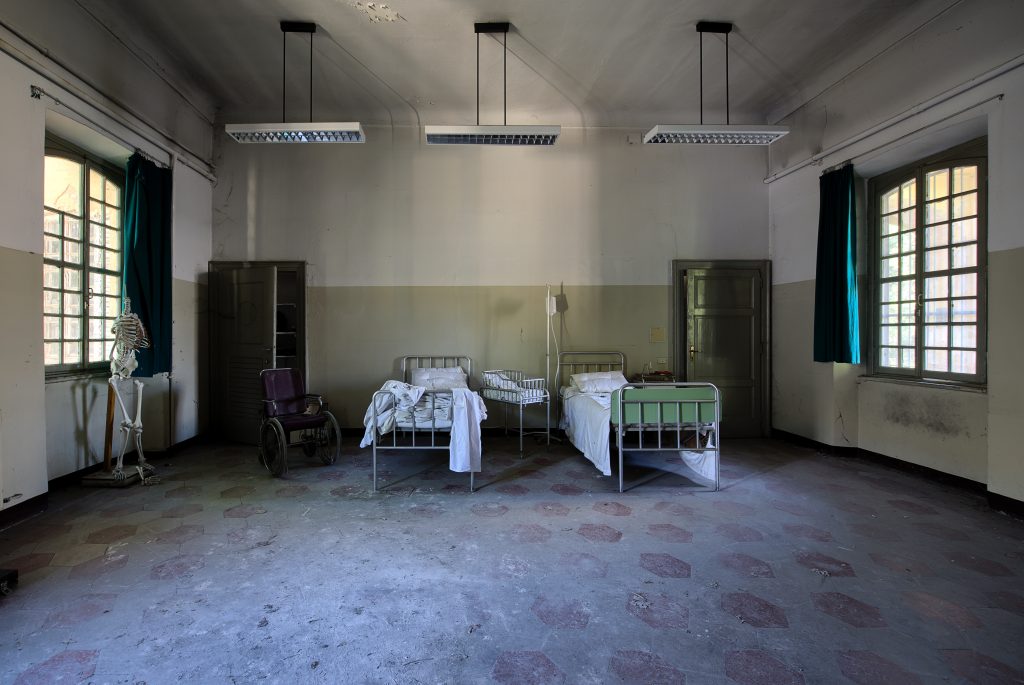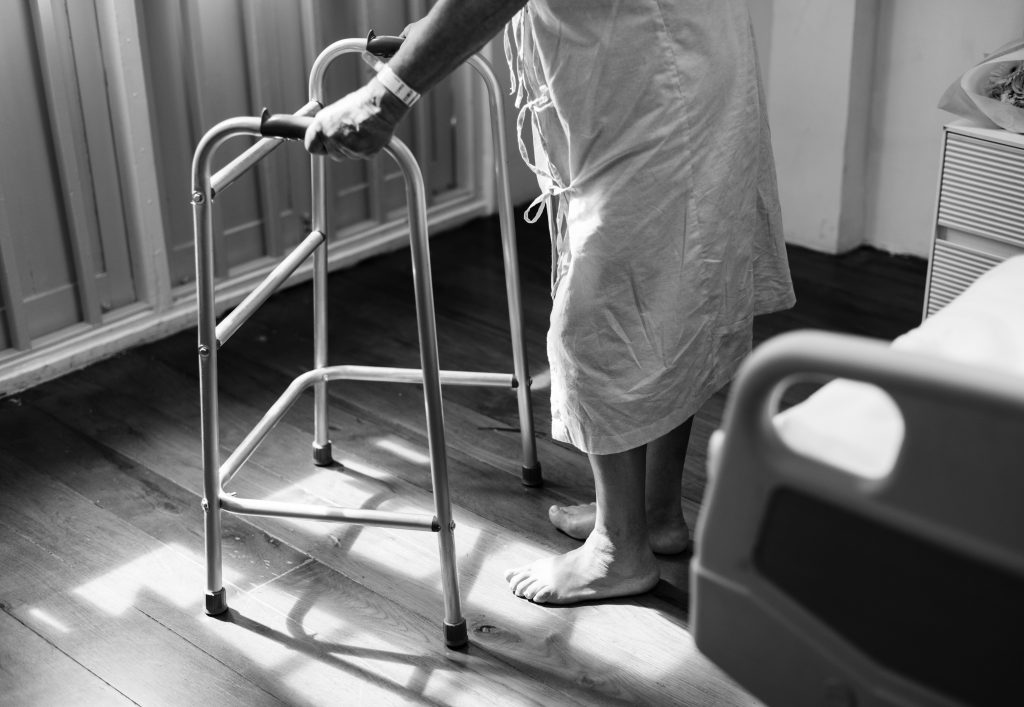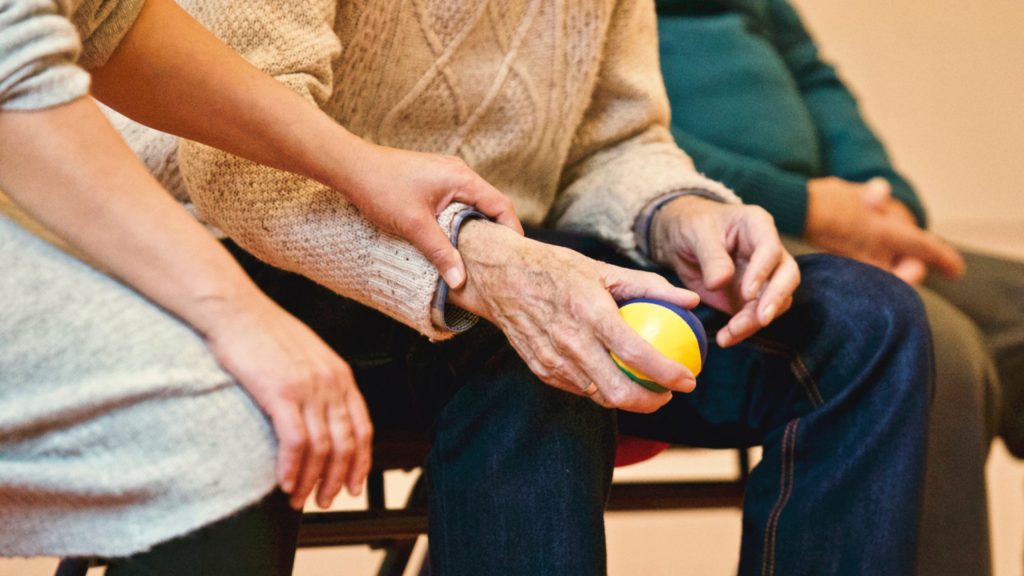Mental health patients are subjected to “unacceptable burning injustices”, as a landmark independent review of the Mental Health Act 1983 finds the legislation ill-fit for purpose and calls for new rights for the most vulnerable and mentally ill.
An independent review – ordered by the government – finds that the Mental Health Act 1983 is “outdated and paternalistic”, with sectioning powers abused, and patients’ rights seriously undermined.
The report, ‘Modernising the Mental Health Act – increasing choice, reducing compulsion’ was published on 6 December 2018 and found that black people are four times more likely to be detained under the Act than white people.
Its findings point out that too often patients are being denied a say when kept on secure wards.
“It was written when people with a mental health problem were something to be afraid of,” said Professor Sir Simon Wessely, who chaired the review group of mental health professionals, academics and patients.
“But the way we think about mental health and illness has changed dramatically, so now they are more likely to be seen as people to be helped.”
‘Abused and Ignored’ Under the Mental Health Act

Commissioned in 2017 by Prime Minister, Theresa May, the report calls for subconscious biases towards ethnic minority patients to be challenged, with black patients restrained under “community treatment orders” at ten times the rate of white patients. They are often threatened with returning to hospital if they do not keep to strict medication.
Tackling this means removing the community barriers and early experiences of discrimination that make ethnic minority groups stay away from treatment.
I was restrained face down on a mattress. One nurse even told me I should kill myself.
Kate King
Kate King, who suffered post-natal depression, said that her experience in hospitals in East Anglia over a period of seven years probably saved her life, but had been demoralising and “awful” at times.
“I was abused and ignored. I lost my voice,” she said. “I was restrained face down on a mattress. One nurse even told me I should kill myself.”
About 1.8 million patients receive mental health treatment each year, but only one in 20 of these is treated in hospital. While around half of these admit themselves, nearly 50,000 are detained against their will for their own protection or the protection of others.
Ms King, who contributed to the review, spoke of how one patient stalked her and others acted aggressive towards her, but when she tried to complain of staff manhandling her she “was not listened to”.
Another mental health service user told the report that “professionals come with stereotypes” and “have to make a special effort to treat us like human beings”.
Tackling A Rising Rate Of Detentions
 Credit: Unsplash
Credit: Unsplash
Detentions under the Act have rocketed by 40 per cent in the last decade, reaching 49,500 last year. People with learning disabilities and autism also faced discrimination under the Act.
Professor Sir Wessely added: “The Act needs to help them more – to make it easier for people to express their choices and preferences about how they want to be treated and harder for them to be ignored.”
While the report found the Act was still necessary to confine those at risk to themselves or others in hospital, it calls for an end to the use of police cells for mental health patients – after police said that 2,000 such detentions in a year could be ‘unlawful’.
Matthew Scott, Police and Crime Commissioner for Kent, said: “I believe that we can start to make sure the police isn’t picking up the pieces on behalf of other agencies, that people are getting the support they need at their time of crisis, and that the police can be freed up to fight crime.”
A Wide Array Of Changes Needed
 Credit: Pexels
Credit: Pexels
Its findings also stress that mental health patients should be allowed to choose their “nominated person” to control their care if they were sectioned. Whereas the current legislation means it automatically goes to the nearest relative – who could be estranged.
The report also recommends:
- new rights for patients to legally challenge their treatment, and more ways to question their detention
- advanced care plans written in law, allowing patients to voice how they wish to be treated if sectioned
- doctors record precisely when and why they decided to ignore patient requests
The government says it will enact two of the 150 recommendations made, in a new Mental Health Bill due to be considered before Parliament.
Mental health charities, Mind and Rethink Mental Illness have welcomed the ‘Modernising the Mental Health Act’ report, hailing it as a landmark moment.
Funding Needed To Avert Crisis Point
 Credit: Pixabay
Credit: Pixabay
But others warn that government funding for community mental health services is often at the heart of the problem, with a lack of hospital beds forcing police restraints.
“If the Government is serious about significantly reducing the use of the Mental Health Act, hard-pushed mental health services urgently need further investment and a larger workforce to help people stay well before they reach a crisis point,” said Professor Wendy Burn, president of the Royal College of Psychiatrists.
British Medical Association mental health spokesman, Dr Andrew Molodynski added: “Meaningful change can only endure if underpinned by properly staffed and fully resourced services.”
The Mental Health Act we have today is in many ways outdated and paternalistic.
Sarah Hughes, Chief Executive of the Centre for Mental Health
Sarah Hughes, chief executive of the Centre for Mental Health, added: “The Mental Health Act we have today is in many ways outdated and paternalistic.
“The Review’s recommendations should go a long way to bringing the Act into the 21st century by ensuring people have more rights to say how they want to be treated, including by making advance decisions that professionals have to take more seriously.
“It also makes important recommendations to ensure people in prison are transferred to hospital more quickly. We know that too many prisoners are made to wait for weeks and months for treatment when they are acutely unwell.”
Theresa May said: “The disparity in our mental health services is one of the burning injustices this country faces that we must put right.
“For decades it has somehow been accepted that if you have a mental illness you will not receive the same access to treatment as if you have a physical ailment. Well, that is not acceptable.”
The government will issue a formal response to the review’s recommendations next year before preparing the new Bill.
Featured image credit: Asdrubal Luna | Unsplash






